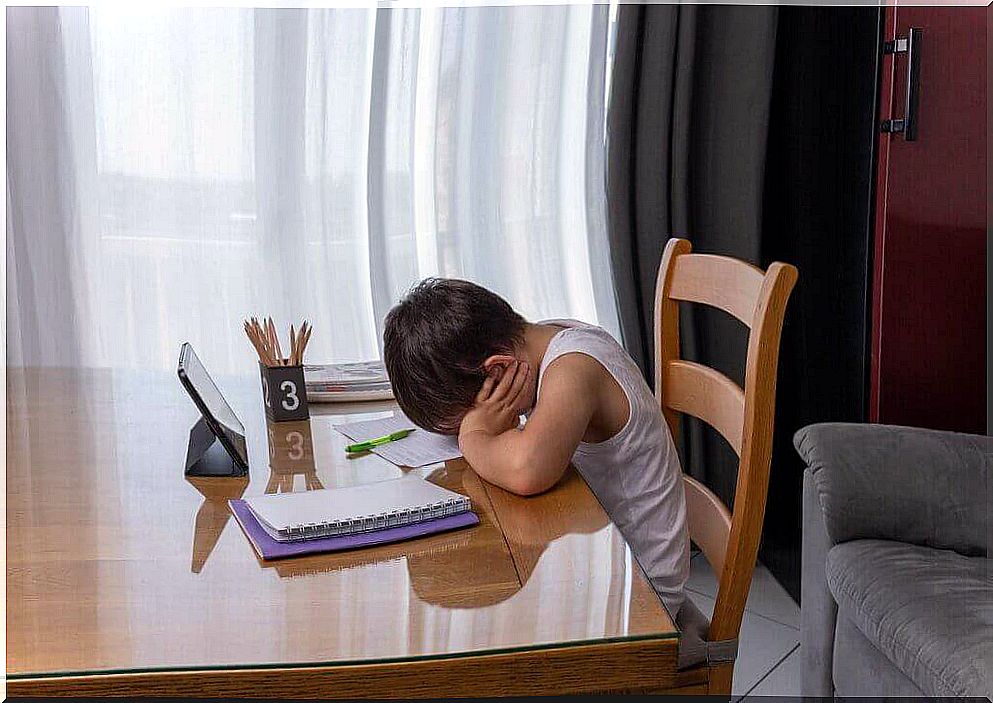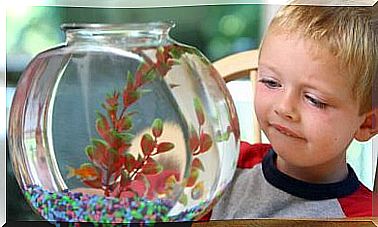Children Need To Rest Their Minds Too my

As adults, we are aware that when we spend time focused on a task, we need to rest our mind. So we usually take a moment to have a drink or talk to a colleague at the office. Although children seem full of energy, and although the time during which they can maintain concentration is much shorter, they also need to rest their minds.
If this is not provided, the consequences will not be long in coming. Ranging from irritability and frustration to lack of concentration, the depletion of your cognitive and emotional capacities will manifest itself in many ways.
We often assume that these symptoms are a reflection of a child’s misbehavior when in fact they are a request for help. So to avoid this discomfort and prevent conflicts at home, let’s try to understand why it’s so important to rest your mind.

What does it mean to rest your mind?
Resting the mind is taking short breaks after spending time focused on a task. It is simply a matter of shifting the focus of attention to a different activity that does not require cognitive effort. However, the duration of these breaks and their content must be adapted to each case.
Frequency and duration of mental rest
First, the child’s age is critical when scheduling these rest breaks. Younger children will need breaks much more often than teenagers. Thus, the former should rest after about 15 minutes of concentration on a task, while the latter can continue working for approximately 45 minutes.
Likewise, the duration of these rest breaks will not always be the same. For elementary school children, 5 or 6 minutes may be enough to recharge their energies. However, a young person in the midst of studying will likely need at least 20 minutes to be able to resume the task.
How can children rest their minds?
On the other hand, the way each child needs to rest their mind may be different. Some children are more introverted and regain vigor by doing quiet activities on their own. Other little ones are more dynamic and active and need more intense stimulation and, preferably, in the company of other people.
So, before choosing how to take breaks to rest your mind, consider what best suits your child’s personality. Some possible alternatives are as follows:
- Take deep breaths or follow a short guided meditation.
- Paint an illustration or draw a free sketch.
- Practice stretching or some child yoga postures.
- Listen to a song, sing and dance some songs. Breaks that include exercise have been shown to improve not only academic performance, but also children’s physical fitness and habits.
- Talking about something extraneous to the activity, drinking water or eating something are simple actions that provide that mental space that the child needs.
When do children need to rest their minds?
Breaks to rest the mind are essential when children are doing school or learning tasks. You will find that by implementing them, many of the family arguments and conflicts that arise when doing your homework will be avoided.
But this isn’t the only time breaks are beneficial. They are needed in any activity that requires the child’s mental energy for an extended period of time. So whether she’s reading, playing games or watching television, it’s important to change tasks periodically.

Likewise, if your child has been through an especially stressful time, it would be very positive to plan a family outing to help them disconnect and have fun. For example, taking a field trip after the test period will be very helpful for your emotional recovery.
Resting the mind brings great benefits
These small gaps of time should not be seen as unproductive or a waste of time. On the contrary: they are the best allies to ensure that the child returns to the task with renewed energy and full faculties.
The benefits of taking short breaks include greater concentration, attention and the ability to retain information. It also prevents fatigue and frustration and helps improve your child’s attitude and mood. In short, it’s a simple habit that can help generate big positive changes.









